Primary school headmaster honoured with the National Teachers’ Award 2024 – GetBengal story
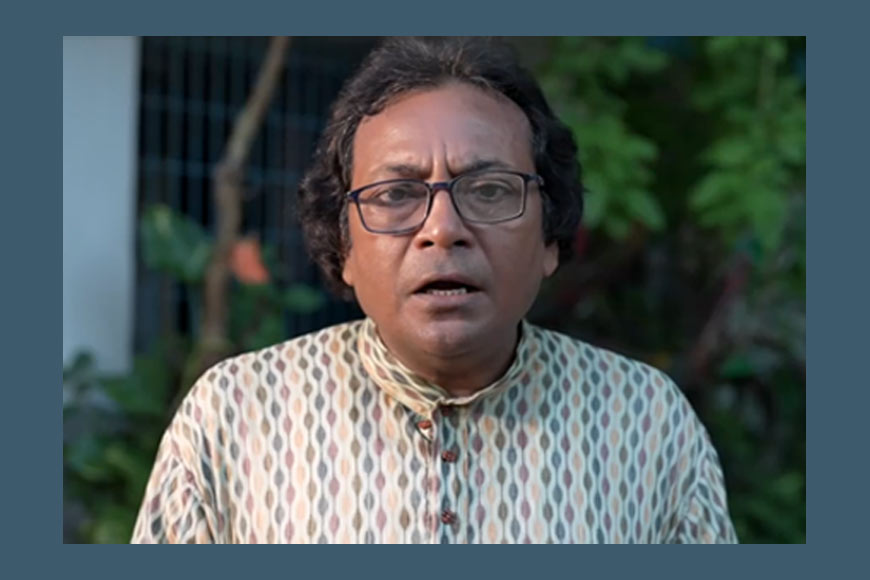
India celebrates Teachers' Day on September 5 annually to honour the memory of the country’s second president, Dr. Sarvepalli Radhakrishnan, a revered philosopher and teacher, and to commemorate the importance of teachers in our lives.
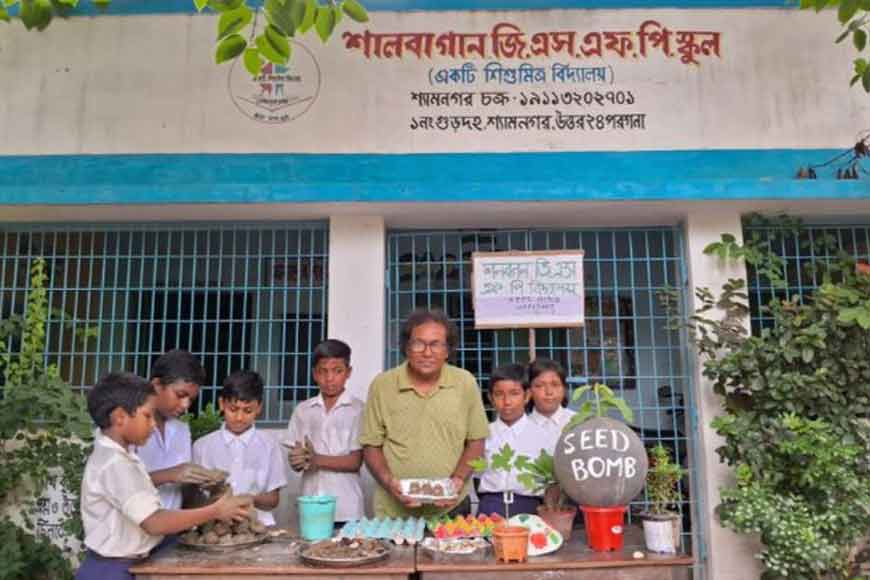
President Draupadi Murmu presented the National Teachers' Award 2024 to 82 exceptional educators of the country at the ceremony held in New Delhi. This award ceremony is organised every year to acknowledge the important role teachers play in shaping the nation’s future.
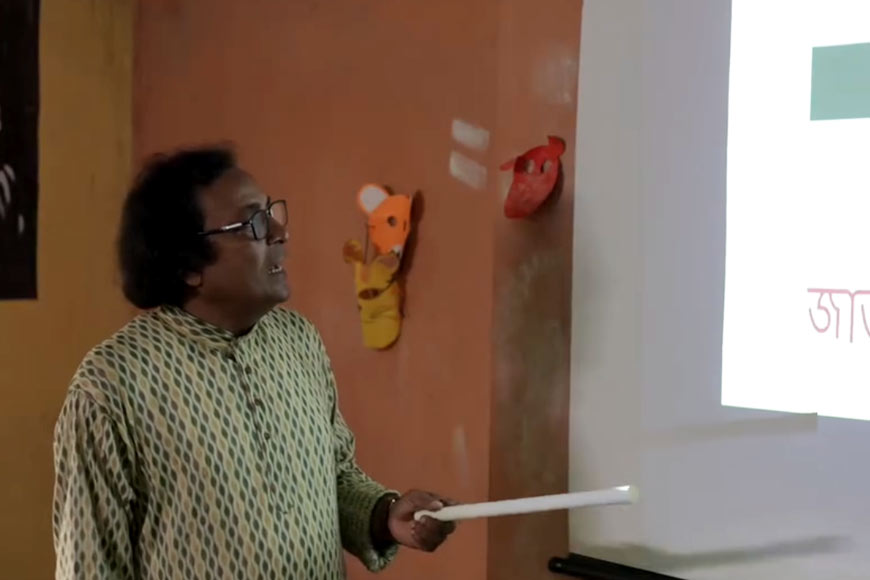
This year, the Department of School Education & Literacy, Ministry of Education, selected 50 teachers for the award from 28 states, 3 Union Territories, and 6 organisations. The Department of School Education and Literacy shortlists the names of deserving candidates after a three-stage rigorous selection process undertaken at the district, state, and national level, and then the names are finalised. This year, two teachers from the state, Ashish Kumar Roy of Narasingha Vidyapith and Prasanta Kumar Marik, were chosen for the prestigious award.
Primary school teacher Marik, who is also the Administrative Head of Shalbagan Government-sponsored Free Primary (G.S.F.P.) School in Gurdaha village, Barackpore, was conferred the prestigious National Award for Teachers, 2024, for his outstanding contributions to education and nation-building. His innovative teaching methods using low-cost, play-based materials and open-air classes that enhance student engagement and holistic development, inspiring a love for learning, endorsed his candidature for the award.
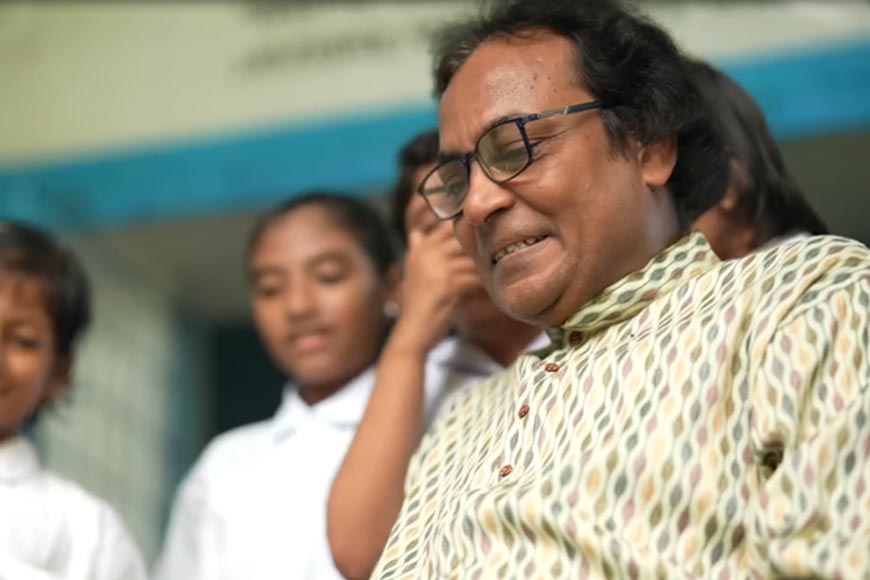
Children, especially young children, explore their world through play. Outdoor play is important for children’s physical development, as they develop their sensory and fine motor skills. This is especially true in preschool, where the work children do in developing fine motor skills through play has strong cognitive benefits later on. If on any given day, a visitor happens to pass by the tiny yet neat school building, the sound of happy children playing in the schoolyard while learning tables or using words to make sentences, quizzing each other on mental math, will greet the unaccustomed ears. Prashanta Kumar Marik is the helmsman of this entire project, who, along with his dedicated band of six teachers and a body of children’s representatives, runs the show.
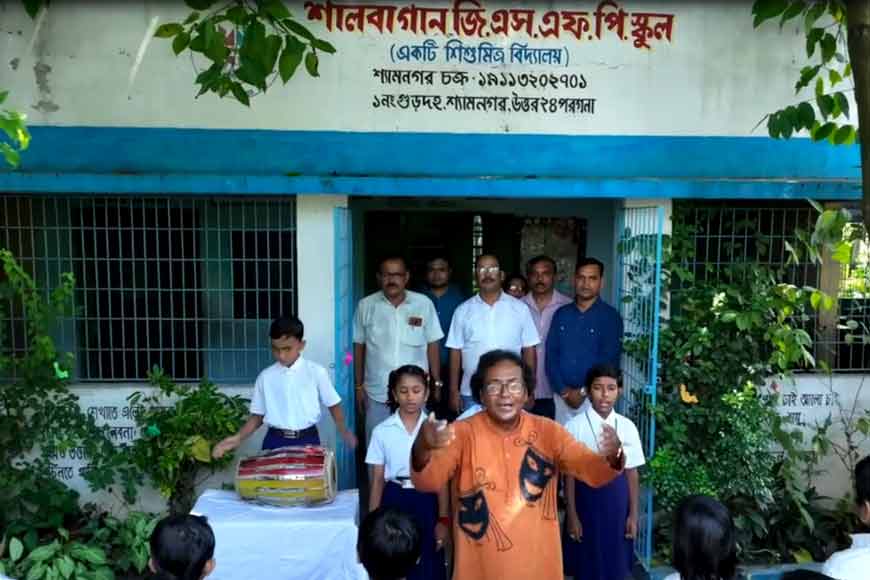
In 1863, Nobel Laureate Rabindranath Tagore established a school modelled on the principles of humanism and sustainability. Tagore insisted that the young mind should be saturated with the idea that it has been born in a human world, which is in harmony with the world around it. He propagated open schooling, but a regular type of school forcibly snatches away children from a world full of the mystery of God’s own handiwork, full of the suggestiveness of personality. It is a method of discipline that refuses to take into account the individual. Marik was deeply influenced by Tagore’s philosophy, and he introduced open-air schooling in his institution. In his school, children play and learn their lessons in nature, in the open garden, under the shade of trees, which Marik lovingly refers to as classrooms. He has been researching the multiple benefits of play for children in school. Play has a vital role in the healthy development of children. Free, unstructured playtime outside in nature allows children to run and jump and climb and use their bodies and expend some of the excess energy, and grow and develop physically in a healthy way. These physical benefits of play allow children to develop into strong, balanced young people who are more agile, confident, and comfortable in their own bodies. A core mental health benefit of play is that it reduces stress and builds resilience. Play restructures brains towards pro-social behaviour. Marik aims to facilitate reading, writing, alphabet recognition, and basic number concepts or numerical literacy for primary-level students, and he has introduced many simple games for this purpose. The students are divided into three categories: The youngest group comprises children between the ages of 3 and 5 years; the second group of pupils is aged between 6 and 8 years; and the third group of students is in the range of 8 to 11 years. Since children love to play, discuss games, and listen to stories about the origin and development of particular games, Marik develops his lessons around games.
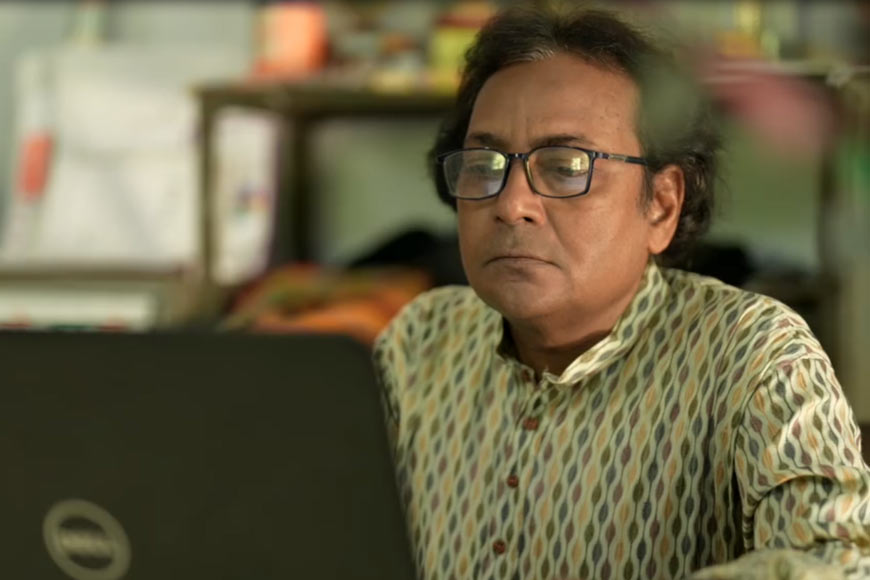
He has introduced the board game Ludo. One group of players uses a small, six-sided die to move their pieces around the board. The number that comes after a person rolls the dice is written on the classroom board. The next student then rolls the dice, and whatever number appears is again written on the blackboard. The children are then asked to subtract, add, multiply, or divide the given numbers. In this way, kids learn elementary maths.
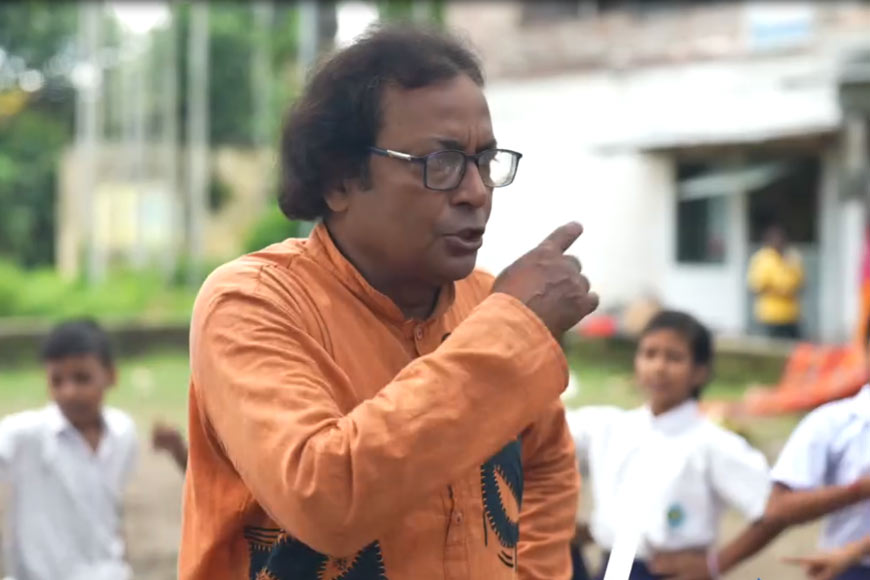
The focus is not solely on academic studies. Marik composes limericks on several issues, including ethical education, the importance of discipline, conservation of nature, health and cleanliness, and social awareness. Children enjoy learning and reciting these poems. Marik’s innovative teaching methods have impacted both the students and teachers of his school. He is often invited by other state government schools to teach teachers and children about his innovative and inclusive learning methods. He is a beacon of hope for parents of first-generation learners in the village. In fact, his fun teaching methods attract new students, and the number of children in the school has now increased from 40 to more than 100.










